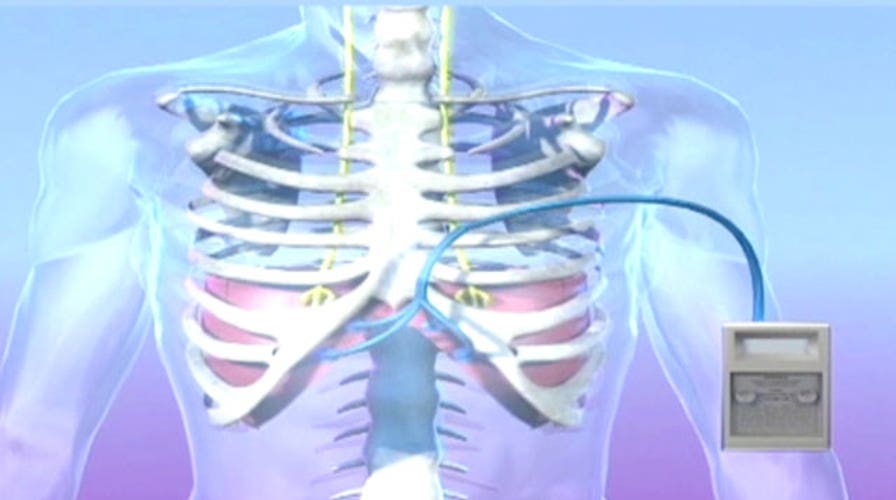New device helps ALS patients breathe easier
Dr. Manny looks at how an innovative diaphragm pacing system helps extend the lives of patients with Lou Gehrig’s disease
When Gerry Hayden, a 48-year-old chef from Long Island, N.Y., was diagnosed with amyotrophic lateral sclerosis (ALS) – also known as Lou Gehrig’s disease – he didn’t expect the disease to progress so quickly.
“I knew who Lou Gehrig was... I didn't know…what ALS really was though,” Hayden said. “I knew it was a crippling disease (but) I didn't know what it was all about, I didn't know how it affected your body.”
ALS is a progressive, incurable neuromuscular disease that affects the nerve cells in the brain and spinal cord. Symptoms include muscle weakness, slurred speech, trouble swallowing and paralysis.
“So I went from cooking one day to three months later not being able to hold a knife ‘cause I was afraid I was going to cut my fingers,” Hayden said.
But one thing has gotten a little easier for Hayden: breathing.
In March, Hayden was the first patient at Stony Brook University Hospital on Long Island to receive the NeuRx Diaphgram Pacing System (DPS).
During laparoscopic surgery, Dr. Dana Telem, a surgeon at Stony Brook, connected electrodes to Hayden’s diaphragm, which were then wired to a small external battery-powered box that stimulates the contraction of the diaphragm muscle.
“We can still help keep that muscle alive and keep it contracting to keep people off of what we call non-invasive ventilation – or even ventilators for a longer period of time,” Telem said. “And when we look at studies, for the right patients, this has life extension of not just quantity but quality (for) about 16 months.”
Hayden says the benefits of undergoing the surgery have been huge.
“Everything else the disease is taking away. So it's kind of monumental when you have three to four more hours than what you started with,” Hayden said. “So even though your legs are weaker, it's a stimulant for your brain.”
Telem has also noticed a difference in Hayden.
“He's breathing and speaking so much better than when I first met him. He's going for longer periods of time, without taking gaps. His voice is stronger,” Telem said.
Hayden hopes to use his newfound speaking strength to spread the word about ALS.
“That's what happens to ALS patients; we lose our voice and then nobody is there to talk for us…No one can tell the next patient what it's like, cause we lose our voice too quickly,” Hayden said. “I'm thankful I have my voice.”

